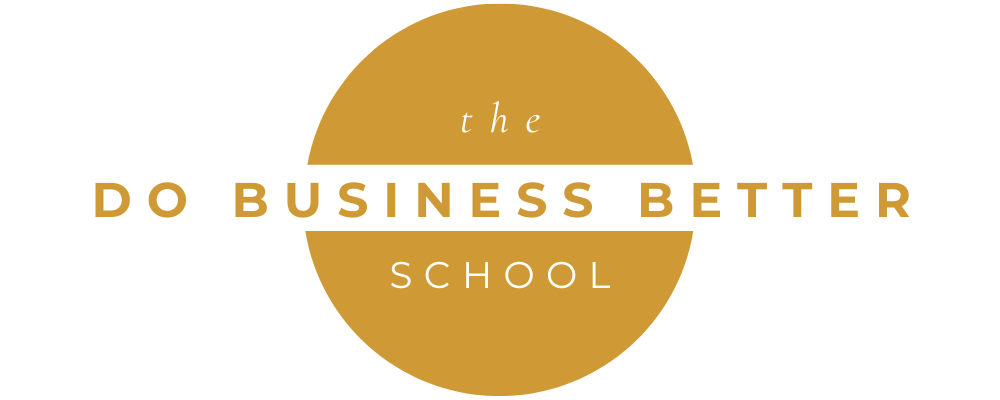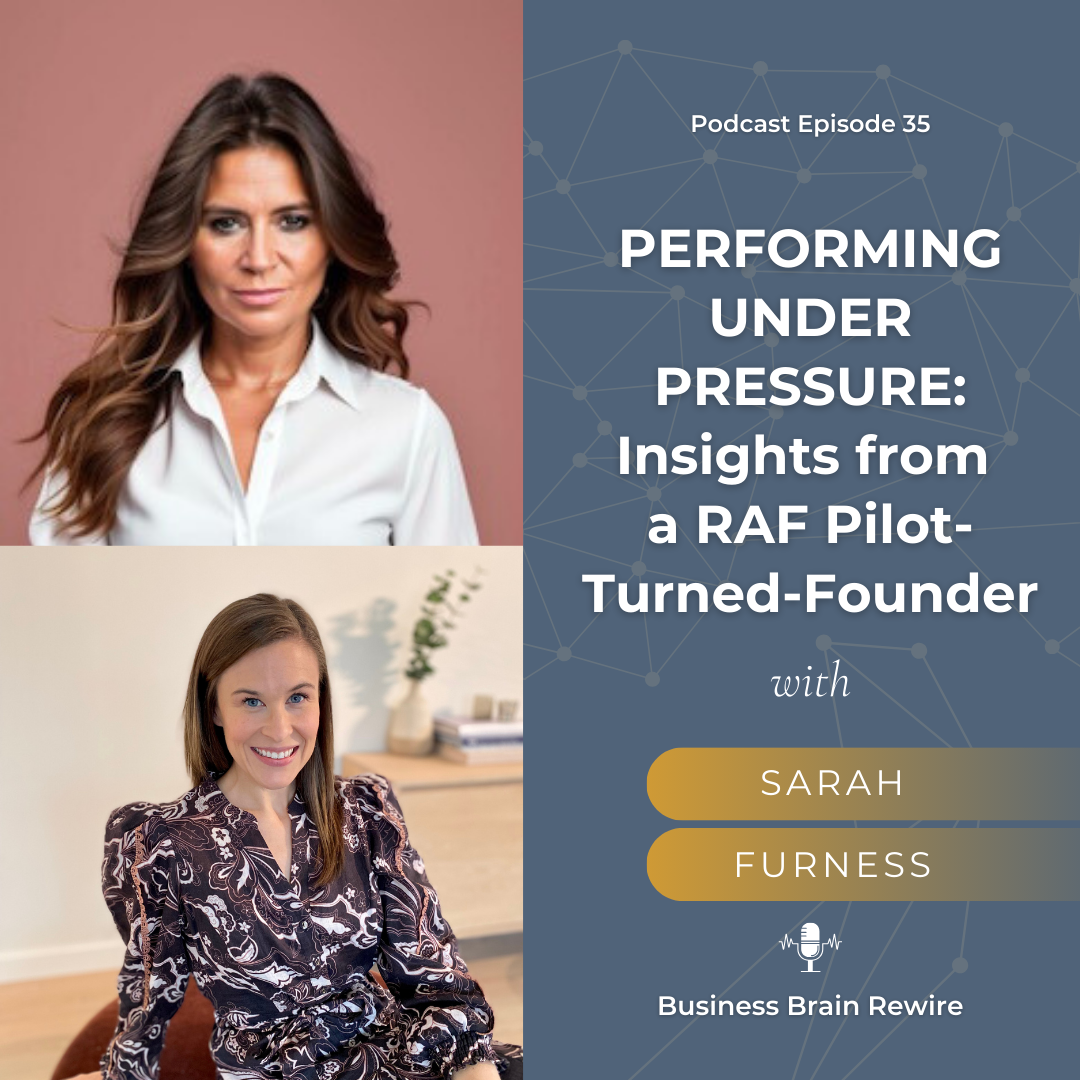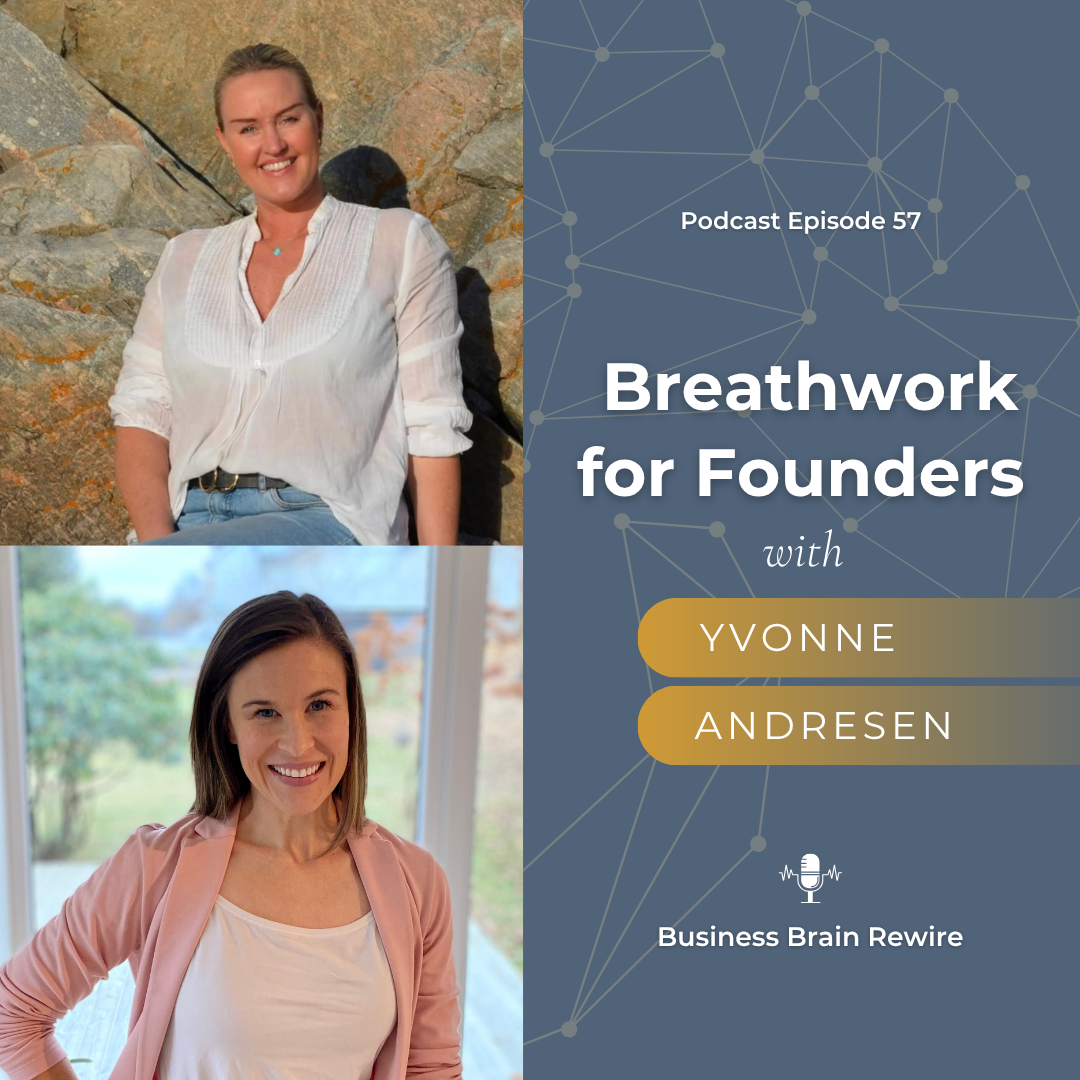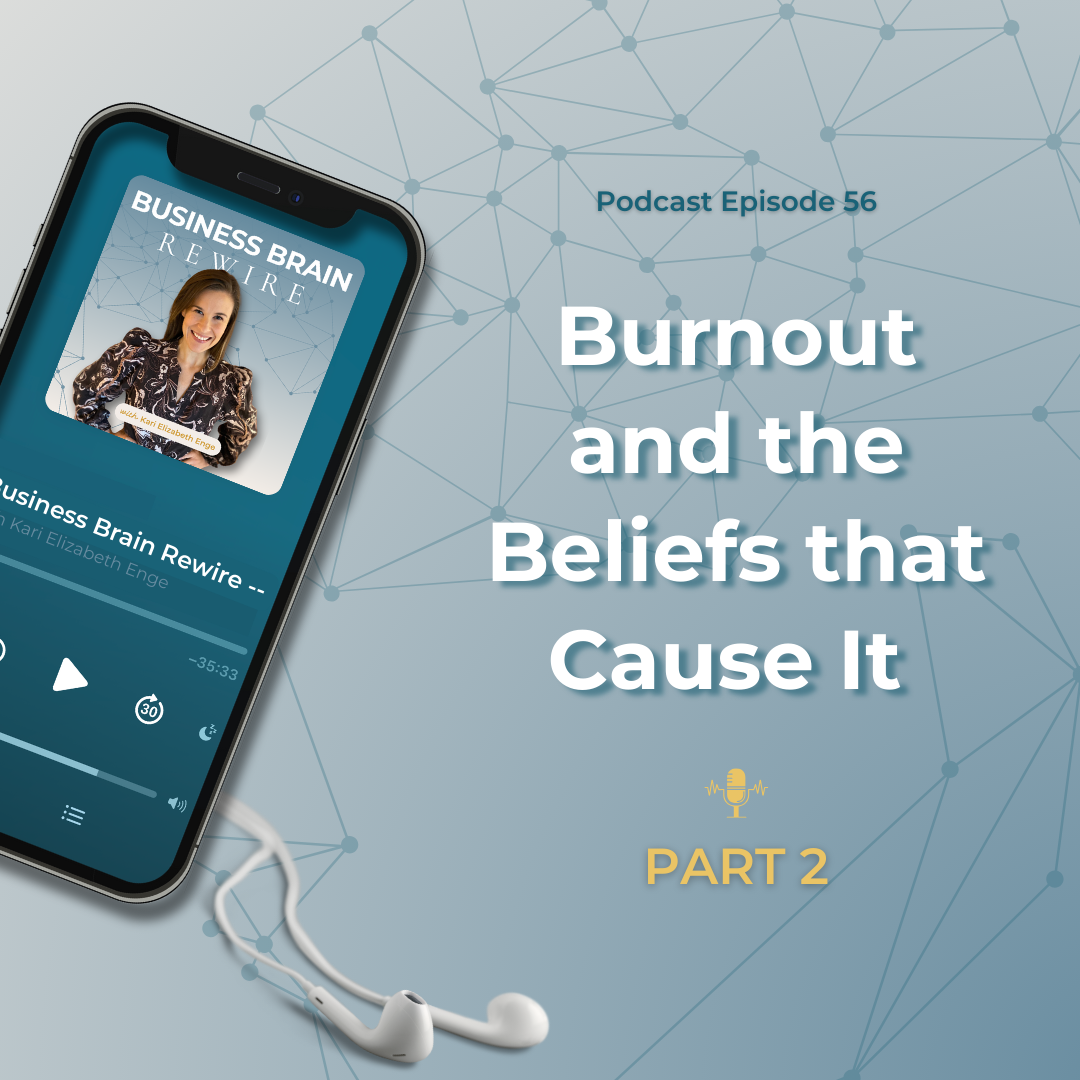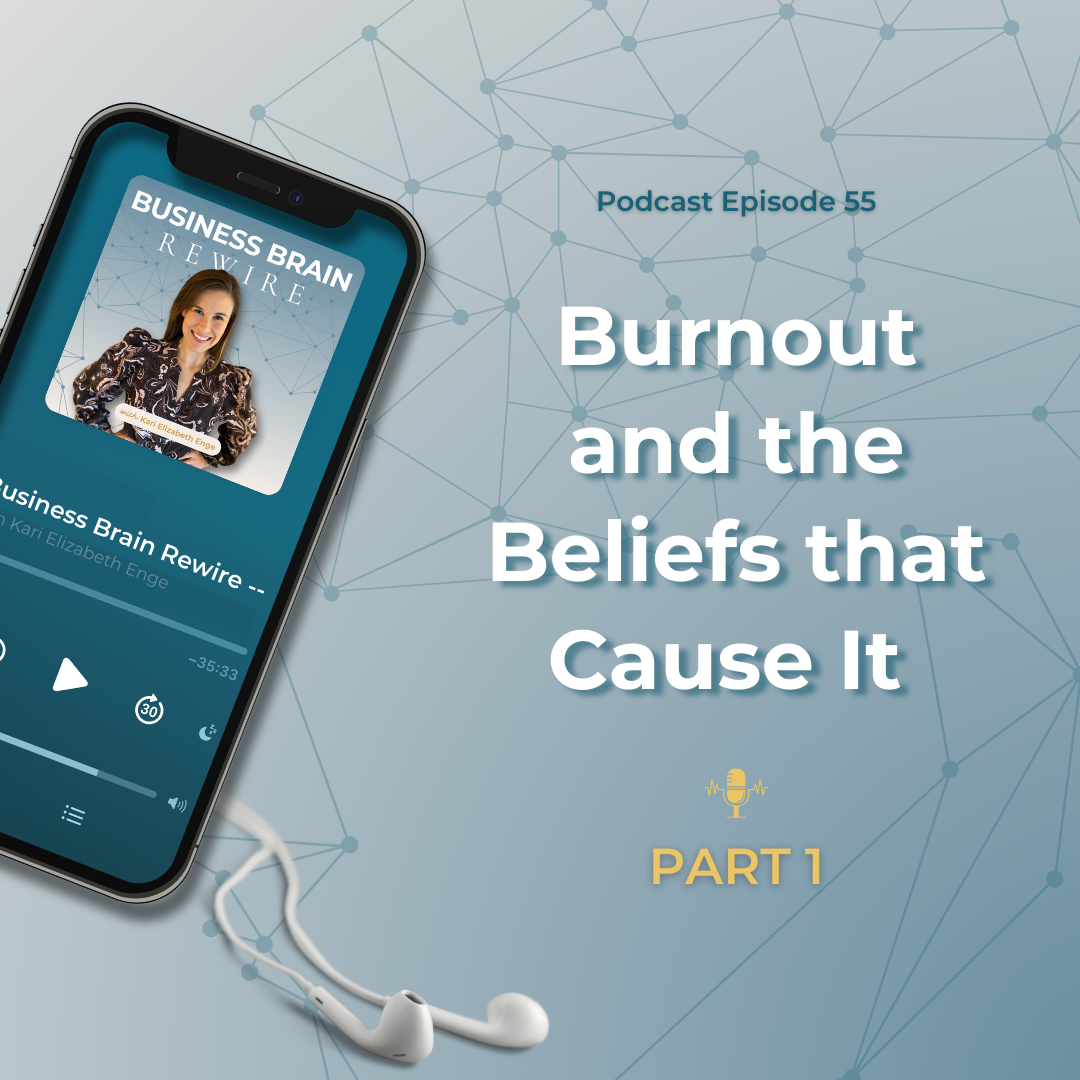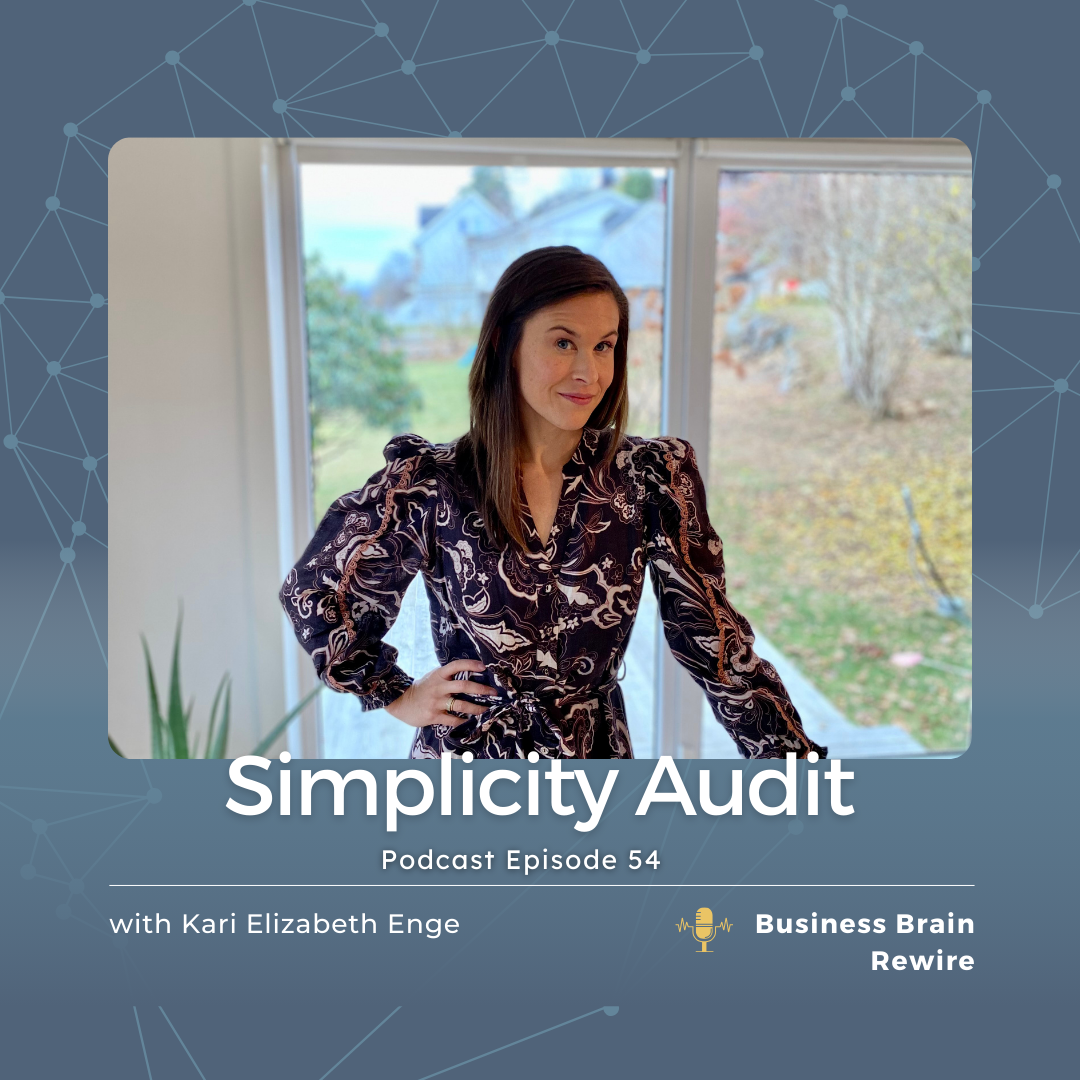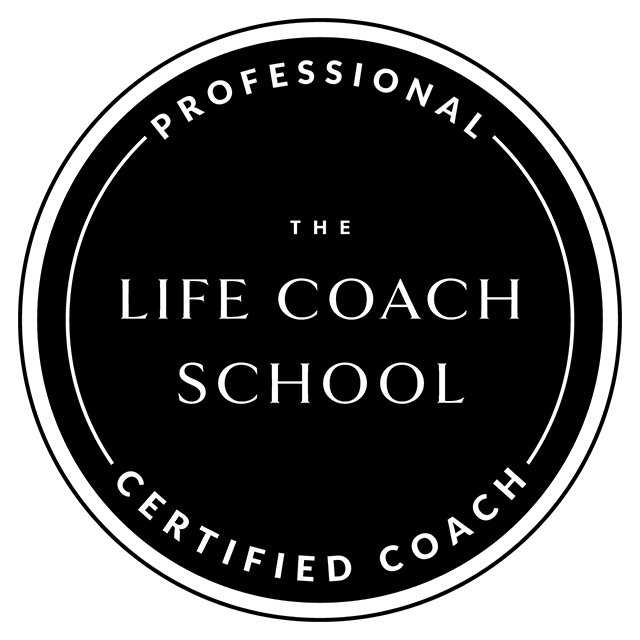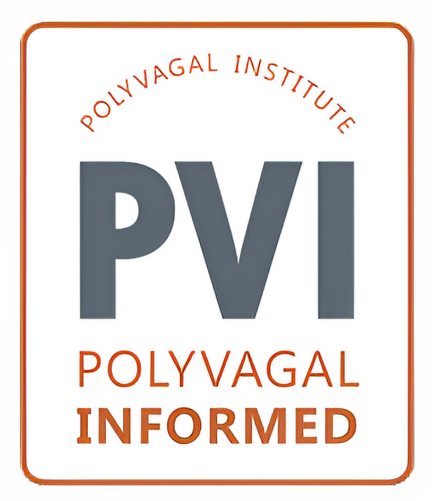Turns out, mindset tools are not just for the self-help world or entrepreneurs. The Air Force uses them too.
Think about it. Pilots train for everything—emergencies, open fire, you name it. Founders? Most of them are jumping in and winging it without checking their mindset.
When pilots are in training, they practice one mantra: “Fly the aircraft.” It helps direct their attention back to what’s critical in the moment—because distractions at 10,000 feet are deadly.
Whether you’re pitching to investors, managing a team, or simply trying to get through a challenging day, Sarah’s wisdom will help you perform at your best—even when the pressure is on.
This episode is packed with actionable takeaways to help you step into a more grounded, confident, and strategic version of yourself. If you’ve ever felt overwhelmed, doubted your abilities, or struggled to prioritize when you’ve got a million things to do as a founder- you don’t want to miss this conversation.
You’ll learn a founder framework that helps you apply Lean Startup Principles in actual practice – so you move the needle faster with more ease. Plus, we add nervous system regulation tools to the process (our secret sauce) so you are clear, confident, organized and growing your company while protecting your personal life and wellbeing. Book a free consult call now, to see if it’s right for you and your company.
[00:00:00] Hello and welcome to Business Brain Rewire. I am so excited because today I have a guest for you. I have been really looking forward to inviting Sarah Furness onto the podcast for several months and I am so excited that you get to hear from her today. Sarah Furnies spent 20 years as a Royal Air Force helicopter pilot where she trained to perform under pressure. As a squadron leader, she led operational combat tours in Iraq and Afghanistan, and she was the first female helicopter pilot to fly and lead UK Special Forces missions in Iraq. Now she is the founder of Well Be It, where she regularly speaks to groups to help them to grow themselves, lead fearlessly, and reach goals under pressure. She is also the author of two number one best selling books, Fly Higher and The Uni Tasking Revolution. She is the mother to a young son who keeps her on her A game. What I love about Sarah is that she teaches several things that align with what we talk about a lot here on Business Brain Rewire, but she knows of these tools and these concepts because of her time in the military. I think it’s so easy to hear, you know, from business coaches or hear from people like me, or maybe you read these motivational books and think, oh, that’s lovely, but you just don’t get what I’m experiencing. Sarah and her background brings so much understanding to how these neuroscience tools and how these mindset tools are actually being used by high performing people who are doing some pretty badass stuff in the real world. So without further ado, here is my interview about performing under pressure and stepping into bigger, bolder versions of yourself with Sarah Furness.
[00:02:39] Hello, Sarah, welcome to the show.
[00:02:43] Hello, hello, it’s great to be here.
[00:02:46] I am so looking forward to chatting with you today. We haven’t had a founder on the show in quite a while. So I’ve been really looking forward to this and really interested in your perspective because of your background. So maybe you can start by sharing just a little bit about who you are, what you do and and your backstory. Okay.
[00:03:14] me or what people find interesting is that I was a combat helicopter pilot in the Royal Air Force, so the British Air Force. for 21 years. So I did that from kind of university or school, straight through to three years ago, when I left and set up my own company, which is called Well Be It, which started out as kind of wellbeing and has moved into performance and leadership. But it all got started really when I watched a film you might’ve heard of Top Gun. I watched this film when I was 12 and I don’t know if you remember what 12, but you know, back then you sort of don’t have any barriers. You just think, well, I can do anything I want. So, so I did. I thought, great, that looks like a really cool job. I want to go be a pilot. So I set my sights on joining the air force and then that is what I did for 21 years, and it was great, during my time in the Air Force and certainly towards the latter end, I then became very interested in kind of how the brain works. And, you know, became aware that people are really good at self sabotaging and they don’t always, they put a brave face on things, but they’ve got things they’re worried about, and that became something that I really wanted to
[00:04:26] sorta dig into.
[00:04:28] Having been through my own ups and downs, you know, I sort of navigated a way through and thought it’d be terrific if I could help other people. That became my new passion and so I left the air force and started up a business so that I could do that.
[00:04:42] That is so fun. I think you’re the first person I’ve ever met who’s worked in the air force as a so I just think this is such a fun background story that probably brings a lot of fun color to your examples in your storytelling, so I’m excited to to hear more about it today. One of the things that I saw when I first came across you and your work was a statement that I think you say often, which is how we perform under pressure is not a mark of our character, it’s a mark of our training, and I loved that. So can you share just a little bit more about how this relates to the air force, how you maybe learned this in the air force and then how that can help us as founders.
[00:05:30] Yeah, absolutely. So I think, you know, certainly like to go back to Top Gun. You know, from that, from that film and from a young age, I had this idea that if you’re going to be, you know, a fighter pilot, you’ve got to just be naturally good at something. And of course, you know, natural talent does, you know, you might as well play to your strengths, right? But I think I was brought up this idea that you’re either good at it or you’re not and that’s it. It took me 20 odd years of training extremely hard, you know, that’s what we do in the military, people kind of assume, or maybe, you know, what they hear on the news is that we’re in conflict
[00:06:06] zones.
[00:06:07] But that’s 1 percent of the job. Actually, most of the job is training. That’s something that most people in the corporate space or people who are starting up don’t have the luxury to sit at home and train. So I’ve had the benefit of training very hard for
[00:06:20] 21 years. And what that has taught me was that
[00:06:22] Okay.
[00:06:22] that actually, you know, being able to kind of keep your cool when you’re in a battlefield, having bullets flying over your head, is actually something that is drilled into you. In two ways. One is you have an immediate action to do. So you don’t have to think about it. It’s just an automatic behavior and you do that through repetition. But also, staying calm isn’t something that you just have or don’t have. It’s something you’ve learned to do because you’ve put yourself in
[00:06:47] not terrifying,
[00:06:48] but, you know, optimally
[00:06:50] stressful
[00:06:51] situations. You’ve been in that peak performance situation many, many times before. You’ve pushed yourself many, many times before.
[00:06:57] And what that gives you over time
[00:06:59] is this sort of quality of mind that allows you to actually make good decisions under pressure. And all of that, it’s stuff you learn. All of that stuff is up for grabs. I think that’s important for founders because, you know, maybe we think it’s a bit like being a fighter pilot. You’ve either got it or you don’t. Well, of course there will be some attributes that are going to make you more likely to be attracted to that. But actually a lot of this stuff is stuff you can, you can learn. A lot of this stuff is, you know, you can train yourself to be better at this stuff.
[00:07:28] Yeah, I think that is so important. That’s such important information and I love your perspective on it from the military, because founders beat themselves up all the time when they don’t actually perform well, maybe they freeze on the stage when they’re pitching to investors or they kind of blow it in a sales meeting or they make another mistake and they don’t give themselves any room for that practice
[00:08:03] or that training.
[00:08:25] The person doesn’t go into like freeze or they don’t completely shut down. How do they keep it like optimally challenging so that they can stretch themselves just a little bit and build that resiliency and that calm?
[00:08:42] It’s a great question. I think. It’s probably a bit of trial and error because you don’t know what your limits are until you’ve kind of butted up against them. But also, if you’re training someone, you know, when you’re in flying training, one of the things that we do a lot is we, if my student was flying and I was the instructor, I would push them beyond their natural level of confidence, but not beyond my level of competence, which means I can recover it, you know, before we crash into the ground, but you want to sort of push them slightly beyond, but
[00:09:16] before a point where
[00:09:18] the business is going to implode.
[00:09:19] Right? So I suppose it’s about just nudging the boundaries, but also being prepared for a bit of trial and error and there will be times that you overshoot and you just think that was just terrible, but you, you really can’t understand what your limits are until you’ve sort of bounced up against the guardrails. I think, you know, often we’re so hard on ourselves and we think we’ve got to have a perfect route, but you know, when you started your company, you know, did, did you end up exactly where was going to be? I’m in a completely different place three years later than where I thought I was going to be. You don’t need to get, you don’t have to kind of have a straight line all the way through. I think it’s completely fine. Actually you should give yourself permission to just sort of bounce off the guardrails a bit and go, okay, I’m every time I do this, this is data and I can refine for the next time.
[00:10:03] Yeah. In the Air Force, if someone, let’s say, didn’t keep their cool and the instructor had to take over, what was the dialogue between the instructor and the student? Let’s just call them that.
[00:10:18] Yeah. Yeah. Well they would say I have control. Because you’ve got to have very clear language, you know, when emotions are running high, when you’re in that fight or flight, you’re not probably thinking very clear. You’re not thinking very rationaly, but also your capacity and your hearing goes. It’s one of the first things that goes when you’re really maxed out, right? Keep it very simple and just say, well, I have control. And then, you know, we will sort of take control and if you’re in a helicopter, which is what I feel, you could probably land. If you’re in a plane, you’ll kind of fly straight and level and give yourself some space to think and then go, right, and sort of recover the immediate situation.Think about what do we need to do next?
[00:10:52] the, the,
[00:10:53] and then continue with the mission and then the sort of the deeper reflection happens when you’re on the ground, you don’t try and do it when you’re in the middle of a mission. So, you know, obviously, if you’re in the middle of a pitch, whatever it is, you know, you can see that there’s a kind of an element of gathering yourself in the moment and then going right, I’ll do the 10 percent thing and then the 90 percent of learning can happen when I’m at home with my cup of coffee, like thinking about it. So I think it’s.
[00:11:16] Right.
[00:11:17] just taking that, taking that stock, but also knowing what can wait till later to come back and have a reflection time on.
[00:11:25] Yeah, yeah, I love that. And I think that it’s something that can hopefully help founders when they compare it to your background, because a lot of founders aren’t giving them that space to just take care of themselves in the moment, and some of them are never coming back around and looking at it from a really objective kind standpoint of, okay, how do I improve? They’re really beating themselves up instead.
[00:11:51] Yes. Yeah.
[00:11:53] When founders are in a marketing and selling scenario, there’s often, especially for startups, there’s this invisible pressure that they often bring into those environments because they need to move the business forward. They have KPIs to reach, they need to pay the bills and so on. What is your personal advice for how they can stay focused on what’s important?
[00:12:22] Yeah, look, you know, I totally relate. You know, when you go, when you make that brave decision that you’re now in charge of your own paycheck, that’s a really brave thing and that’s also pressure that you’ve invited on yourself, but also that can, that can get a lot. So I think, you know, the first thing here is, you mentioned the word already, being kind on yourself. If you kind of go, the worst thing you could do at that point is then beat yourself up for feeling a little bit overwhelmed because it’s totally normal and you’ve been terrifically brave in the first place. So I think, you know, starting with a bit of kindness, but I also think keeping it really simple. Just remembering, for me, this is a game of prioritization when your brain goes into a fuzz and goes, I’ve got to do everything or I’ve got to try and, you know, i’ve got pressure on myself to make this work.
[00:13:06] Okay.
[00:13:07] What is
[00:13:09] the most important thing right now? You know, I talk about fly the aircraft. That’s the mantra that we use when we’re flying because when you’re flying a helicopter, you’ve got, you know, 70 different instruments that you’re staring at. You’ve got the radios blaring, you’ve got other helicopters close by, you’ve got weather closing in, you’re close to the ground, you know, there’s a lot of stuff you would be doing and you could feel quite overwhelmed and it was recognized that that would happen. So we had this mantra, fly the aircraft. Which meant when you find yourself kind of just trying to do everything at once and you find yourself overwhelmed, bring it back to basics, what’s the most important thing to do right now? The most important thing for us is always fly the aircraft. You don’t fly into a hill right now because you’re no use to anyone. So I think if you can take that step back, you know, be kind, okay, this is not easy, but okay, what’s my fly the aircraft priority right now and just keep, you know, I would ask myself that question 20 times a day if I need to, but there’s no sort of, you know, people think, oh I’ve got to get it right and then that’s got to be my priority for the rest of the day. Keep asking yourself that if you need to, when you feel yourself getting overwhelmed, you can just keep reminding yourself, right. What’s the number one priority right now? And just take that step back and I think that has really helped me when I’m trying to juggle a million things at once.
[00:14:25] Mm hmm. Yeah, you talk a lot about the fact that the human brain can’t multitask and it can literally only focus its attention on one thing at a time. I think that that has a lot of usages in in the air force, right? Like just fly the
[00:14:40] Yes,
[00:14:41] Um, but also in business. So can you talk more about your view of multitasking and how you and your work help businesses to focus on what’s important?
[00:14:55] Yeah, no, absolutely. I mean, it’s interesting because as a founder, you probably wearing multiple hats and you may have said: I need to be good at multitasking or I’m a good multitasker. And I said exactly the same thing as a pilot, by the way, you know, even do a multitasking aptitude test when you join. There was this whole kind of narrative that we need to be good at multitasking. You kind of think, well, why are you now talking to me about, we can’t multitask. But I actually remember, one of the best pilots I went through training with, back in my twenties said, you know, you can’t multitask. You can only task switch. I dismissed it at the time. It took me another 20 years to realize he was right. But basically, you can only focus on one thinking task. You know, your brain’s doing a million things at once, of course, but you can only think and focus on one thinking task at a time. So obviously when you’re flying, when you’re doing, you know, founding your company, these are thinking tasks, right? When you’re multitasking, you’re switching from one to the other. Every time you do that, the brain’s running background tasks such as goal activation, no rule activation, goal switching, all this sort of stuff, basically, it’s like having a whole load of computer programs running on your computer any one time, your computer starts to slow down. That’s what happens to your brain. And you know, you kind of take on this busy state, don’t you? It doesn’t feel great. So actually the way to sort of use your brain. to its maximum potential when doing anything, but you know, particularly founding, or flying an aircraft is to focus on one thing at a time. And in order to do that, you’ve got to prioritize what the one thing is you’ve got to make a decision. What am I going to focus on right now? Then do it to the best of your ability and you will do that better than if you try and do a million things at once. Principles are exactly the same. It just comes down to keep asking yourself the question, what’s my top priority right now? What am I going to focus on? Then obviously from a business point of view, you could do your strategy and go, what’s my top priority for three months, what’s my goal? And what are my tasks going to be to reach that point? But it’s always about prioritizing and focusing.
[00:16:55] Yeah, absolutely. I’m curious about what you think about this, when you have pressure and you might be
[00:17:04] in
[00:17:05] Yes.
[00:17:05] some activation or some fight or flight and you know that your cognitive abilities are kind of weakened because of
[00:17:14] Yeah. I think there’s,
[00:17:17] Slow down in order to do more of that creativity and strategy and thinking more high level? Do you have any tips for that?
[00:17:29] Yeah, I think there’s a couple of things that I would offer this point. So first of all, you know, if you think of a boxing ring, because I used to train a boxer and he said, how do I stay calm when I get punched in the face? Right? And this is the equivalent, right? You’re you’ve just been punched in the face. How do you stay calm? Actually, staying calm when you punched in the face is a result of all of the training that you’ve done outside of the boxing ring. So the more times you ask yourself, right? Yeah. Yeah. What’s, what’s my priority? The more you get into a habit of prioritizing when you’re feeling calm, the easier it will be for you to do when you’re not feeling calm. That’s why we train so much in the military so that when you’re on defy, you don’t have to think. You automatically know what to do. So I cannot stress enough how much it will help you if you get into the habit of prioritizing. Cause the aim isn’t to be a superhero under pressure. It’s to make it so easy you don’t have to be a superhero, right? So that’s the first thing.
[00:18:26] Second thing is you’re still going to feel under pressure and you’re thinking, great Sarah, what do I do when I’m under pressure? I think, you know, unless you actually are being shot at, you can probably get up from your desk and just unplug for 10 minutes. I think that’s probably the best thing, you know, when I do that and I can feel, I know your training is about recognizing the states when you can feel yourself getting to that point, 10 minute breath of fresh air, go for a run, we’ll do it, whatever it is. I know it will feel hard and you’ll want to sort of stay, you know, stuck at the desk, but if you can just physically unplug and then come back to it in 10 minutes and go, does that thing feel as urgent as an important as I thought it was 10 minutes ago? Because I bet you it’s not feeling quite as urgent as it was. We can only get that from kind of having some space. Those are the two things is keep practicing this, but also in the moment, the best thing is just step away, you know, take the helicopter view, basically.
[00:19:16] Mm hmm. Yeah, absolutely. when you were talking, I was thinking about how can even practice more prioritization. I don’t know if I said that. I can practice prioritizing in my personal life and I think that that is a really great way to go about this for founders, if they’re finding a lot of stress in their business, they can practice being more decisive and more focused on those low hanging fruit, easy things in their personal life, just to build the muscle. Because what I find with when I look at people who are maybe high performing or successful people versus those people who are not really stepping in to grow themselves, you see a big difference between the two groups. One group is way more decisive than the other.
[00:20:05] Rise. Yeah. Yes.
[00:20:15] and that can help
[00:20:16] Yes. Um,
[00:20:31] great way
[00:20:33] Yes.
[00:20:33] improve. What do you think?
[00:20:35] Yeah, absolutely. There’s so many things you said that I thought, yes, you know, I’m taking those points away. So, yeah, for sure. This is why the flying training I’ve done is equally relevant to founding a company, which is equally relevant to being a parent or a partner, because the brain is the brain. Doesn’t distinguish. So you practice this. All practice is going to help. Also like the thing about making decisions, you know, you make better decisions by practicing making decisions, basically. It is really just about being able to just go out and practice, get a few things wrong, but then refine. You know, practice.
[00:21:10] Mm hmm. I remember, I don’t exactly know who told me this first, it was some point in my coaching certification or something and someone said, you know, decision making is actually a skill set. You’re actually following a process and a skill set and following your training, as you put it. When you’re making a decision, you’re not just thinking about the thing that you need to solve for you’re actually going through a process of thinking in a way of approaching it. That really stuck with me and and now is an integral part of what I like to help founders with because oftentimes they don’t even know, oh, I’m making a decision and here’s the one step, two step,
[00:21:50] Yes.
[00:21:52] for making that right so that you can get focused.
[00:21:55] Yeah. I think, yeah, like you said, there’s sort of two parts to it, isn’t it? There’s the process of decision making, which you can practice in lots of different ways and then also to
[00:22:04] Um,
[00:22:12] which we often think of as like, you know, trust your gut to make the right decision, but that was more related to what you’re deciding about. She said gut instinct is actually your brain rapidly and probably subconsciously scanning through a library of immediately relevant experiences, in order to sort of arrive at a good conclusion. So basically what that means is the more times you’ve been in that scenario, the more likely you are, for your brain to kind of go, oh, we did this 17 times previously, and this is what happened. Actually gut instinct is a sum of your previous experiences. So that’s the kind of the process and then there’s the actual decision itself. The more often you make a decision in that field of expertise, the easier it’ll be because you’ll have this sort of gut instinct. Again, I love the idea that all these things that we think of is natural, and you’ve either got them or you don’t. Yet again, it turns out a lot of this has just come down to trying it out and practicing it.
[00:23:05] Practice. Yeah, yeah, I love that. Can you talk a little bit about self trust and your tips for founders on how to foster that? Because when you’re trying to just focus on the one thing and make a decision, you also have to decide that you’re going to love the decision after you make it or stick with the decision. So you have to trust yourself in that moment. Maybe there’s some air force parallels as well. How do you build self trust so that you can actually go with you’ve decided upon?
[00:23:43] so I think that I think there’s a few things. There’s two things I want to say about that. One is, I’m a big kind of fan of leaning into discomfort, you know, really not maxing ourselves out, but just pushing the boundaries a little bit. I think, you know, in the military, we did that by being cold, wet and hungry a lot of the time. But you could do that by making difficult decisions, right? Anything that feels uncomfortable is practicing, right? I think the benefit of that is every time you do that and you survive it, which you will, because we’re, you know, we’re both here. So we’ve survived all these things.
[00:24:18] I’m
[00:24:19] to yourself that you can survive this comfort.
[00:24:22] in
[00:24:23] next time you reach an uncomfortable scenario, you go, look, I’ve been through worse, you know, so I’ll get through this. I think that’s what gives you the trust to make the decision in the first place. I think that’s the first thing is about
[00:24:32] Uh,
[00:24:34] leaning into discomfort to give you that confidence, sort of this side of the decision.
[00:24:38] I think the other side is.
[00:24:41] Silence.
[00:24:47] or worse. Like you say, you sort of got to not even fall in love with it, but just accept what’s going to come from it.
[00:24:54] Silence. Silence. Silence. Silence.
[00:24:59] There’s a phrase I love, which is everything is either a blessing or a lesson. So either the decision turned out brilliantly and it was like full marks, couldn’t have wanted anything better. Or there were some things that didn’t work out well, but you’ve learned from it. I think if you can have that kind of approach and go, look, the truth is I’ll never know if I could have made a better decision. I’ve just got to let that go. But what I do know is what I get from this decision. I’ll get some positives and I might get some negatives, but that’s data. That’s more data I can use to make a better decision. So actually I can’t lose here. I think it is that mindset and that’s obviously growth mindset, isn’t it? That’s what reduces our fear of decisions in the first place, because you know that whatever the outcome is, you can leverage it for greater growth. Therefore, I think you’re less scared of making mistakes, which means you’re more confident about making them in the first place.
[00:25:48] Yeah, yeah, absolutely. One of the other things that we were chatting about before, when we were preparing for this interview, I asked you, do you have any advice, especially for female founders who might be like low in confidence or just, you know, let’s talk to the females here. We’re two females and you said, you know what? Anytime you put female in the sentence, you’re constraining the narrative. You’re a founder period. I was like, woah, okay, let’s talk about this, cause I loved that
[00:26:21] response.
[00:26:22] Yeah. Yeah,
[00:26:22] Can
[00:26:23] you talk a little bit about why you have this stance on it and, and maybe how your experience in the air force led you to, to this stance?
[00:26:35] Absolutely. Everyone’s experience is different, right? And there’s a really Lots of people ask the question you’ve asked. So obviously it’s important to them. If it’s important to them, then it’s important to them. It’s not for me to say it’s not. I think the reason it’s not important to me is because I wasn’t kind of brought up with that idea. When I said age 12, I want to go be a pilot.
[00:26:55] Okay.
[00:27:00] enter my brain. You know, when I was in the military, yeah, it was mostly boys, you know, it was 95 percent male. So of course I was in the minority and don’t get me wrong, it can be lonely, but I don’t really ever remember equating. I remember feeling lonely because there weren’t other girls I could chat to and there are some things that you want to talk to a girl about, but I don’t ever really remember thinking: but what does that mean for me as a pilot? Because the aeroplane doesn’t know who’s flying it and it doesn’t care. So actually, it really makes no difference if it’s a girl or a boy flying it. It’s just one of those things that I’ve never really focused on and for that reason, I’m always a bit like, why are we still talking about this? I think maybe that that’s helped in a way because I would just be aware of the barriers we might put in place. Like for example, a lot of women say, well, as a woman, I experienced imposter syndrome and right away they’re making this connection. And it’s sort of almost like they’re telling that they’re instructing their brains. I will always have imposter syndrome because of my gender and I can’t do anything about it. But actually I know loads of blokes, loads of men, who have got imposter syndrome. This isn’t just a female thing. I think it’s just about being aware of the story you’re telling yourself and whether or not that’s holding you back. I think the other thing, which is maybe more positive because I don’t want to tell people off, you know, if you feel under confident and you equate that to your gender, then, you know, I get that. I think one thing that you can think of is what is my unique bit of value I can offer to the world.
[00:28:30] For example, I spent 21 years in the military leading mostly men, which meant, if we broadly agree that men and women are different and we think differently, I think we’re more similar than we often realize, but let’s just say that we are different and we’ve got different needs, that means I’ve spent 21 years leading people who don’t think like me.
[00:28:52] Um, Bye
[00:28:52] When I go to leadership conferences, what everybody wants to know about is how do we lead inclusively? How do we lead cognitively diverse teams? Everybody wants to know how to lead people who don’t think like them. So I’ve got a 21 year advantage on all of the male leadership speakers. So I think if you can flip it around a bit ago, what is my unique positioning here? What, what have I got in my armory? Maybe it’s because I’m a woman, maybe it’s not, but what is it that I’ve got that is, you know, kind of my point of difference. I think if we can start to think of it like that and forget about gender, if it happens to be because of your gender, fine, but, you know, let’s think about what our strengths are and what our unique trends are. I think that’s a really good way to think of it as a founder, because ultimately you’re offering value to the world and the world wants whatever you’ve got of value.
[00:29:38] Yeah, I love that. I am an American and I live in Norway and I had to do the same thing. As you were sharing that, I was like, you know what, I’ve actually done that naturally as well. And I talked to a lot of founders who do the opposite. They think like I’m an immigrant, I I’m outside of my culture. My voice is not right. My name it is not right. So when I send an email, they automatically know I’m not from here. So I
[00:30:06] It’s,
[00:30:07] and you know, I can’t come across in sales scenarios as well. I always am fascinated by that and although we work through it in the coaching session in a really empathetic way, I’m always fascinated because that just never entered my brain. I was always the same as you. This is such an advantage. So I think the more we can borrow this perspective from other people and look our
[00:30:31] Yes.
[00:30:43] like holding ourselves back because of this identity statement that we that we’ve made.
[00:30:49] Yeah, that’s a really good way to explain and making it part of your identity. I think that’s it, you know, when you say as a female founder, is that a helpful, you know, sometimes it is, but, it’s just maybe about being intentional about what is my identity and am I borrowing things that I don’t need, you know.
[00:31:07] Yeah, yeah, exactly. It can be, trying to think of some other examples, sometimes it can be as easy as, like, I’m a creative person, not a math person.
[00:31:17] Yes.
[00:31:18] good with numbers. That can also be that can either really empower you to bring people on to support you with their unique outlying strengths,
[00:31:30] Hmm.
[00:31:30] be something that holds you back because now you’ve said, well, I can’t do this and I should be able to. So,
[00:31:36] Yeah.
[00:31:38] it’s really about the conversation happening in your mind, isn’t it? And how you’re positioning it.
[00:31:43] Yeah and actually, because I’m a mum of a nine year old, so I’ve read a lot of parenting books and it tells you about the danger of saying, you know, you are creative because then they assign an identity to I am creative. So you sort learn, and this seems like semantics, but I think the words matter. If you know, you can say, look, I love being creative. I have to work a bit harder at maths. At least you’ve still left some gaps there for you to improve at maths. I think it is just about that stuff does make a difference.
[00:32:12] It’s it definitely does because then we end up as founders and we as adults and we either have to naturally have the growth mindset or we naturally have a fixed one and that can can really make us struggle.
[00:32:26] Yeah. Yeah,
[00:32:28] matter. And I’m sure you’re really thankful to your parents for how they set you up for success to be able to go after your dream in the Air Force.
[00:32:35] Thanks.
[00:32:36] Definitely and I don’t think it’s a coincidence that actually my siblings all bar one are actually all self employed, you know, self starters. So they obviously didn’t, you know, and they weren’t, my parents weren’t. But there’s obviously something they did. They just didn’t put barriers in your way. I think that’s it as well. Sometimes we think we’ve got to have it all figured out and we’ve got to, you know, as a leader, I’ve got to do these brave heart pipe motivational speeches, but actually it’s just about not putting stuff in the way, rather than kind of having this grand dream. I know you’re talking about purpose living, purpose driven leadership, and that’s really, really important. But also just as important, it’s just don’t put stuff in the way I suppose. Um, I guess if you’re, you know, founding, you are
[00:33:20] so much. I think that it’s so wonderful that you get to use your background of being in the Air Force to help understand how to grow themselves and succeed. So thank you so much for spending this half hour with me. Are there any last final words of wisdom that you want to share with everyone?
[00:33:40] Silence. Silence.
[00:33:52] I’m completely leaving the air force all behind and, you know, there’s nothing, nothing, nothing, nothing that I could take. Actually, I’ve learned that there’s lots, but also this kind of mindset of kind of tenacity, you know, I think you need both a bunch of it, don’t you, to found your own business and not giving up. I think, you know, I learned that in the air force because inevitably there were setbacks and things that I had to, I could have given up, but I didn’t. I got to sort of achieve my dream and it took me a long time to get there. So think about what you’ve got already that you’re sitting on that you can use just to keep the, keep the fires burning, because it’s a hell of a ride and I really do wish you all the best and welcome to the club. It’s a great one to be in.
[00:34:33] Absolutely. And where can people go to follow you and learn more about your work?
[00:34:40] So my website is sarah furness. com. That’s nice and easy. And I hang out on LinkedIn a lot cause I’m very cool, so again, if you look for Sarah furnace, I’m the helicopter pilot, motivational speaker. Come and connect with me on there. The website’s probably a good place to start. It will take you wherever else you need to go.
[00:34:58] Yeah, and I would also recommend everyone who’s listening to check out your website because I really did enjoy the little clips of some of your talks. They are really, really motivational and a great thing to watch during a coffee break. So I highly recommend those. Thank you so much, Sarah, for joining us today. We’ll talk to you soon.
[00:35:20] Thank you. Take care.
[00:35:22] Thanks for listening to this episode of Business Brain Rewire. If you want to learn more about my work, come visit me at DoBusinessBetterSchool. com. See you next week.
Podcast: Play in new window | Download
